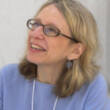Bettyville: A Memoir
(Libby/OverDrive eBook, Kindle)
Available Platforms
Description
More Details
Excerpt
Similar Titles From NoveList
Similar Authors From NoveList
Published Reviews
Booklist Review
Hodgman's mother, Betty, is fading, physically and mentally (she's in her nineties and lives alone, in the family home in Paris, Missouri). A single freelance book editor in NYC, Hodgman finds it easy to take his work and head home to be a caregiver. Once he arrives, however, he discovers nothing is easy not helping his mother navigate dressing, cooking, and a disappearing memory; not facing his past as a gay child and young adult in a small town; not deciphering love, parental and otherwise. The book is instantly engaging, as Hodgman has a wry sense of humor, one he uses to keep others at a distance. Yet the book is also devastatingly touching. Betty is one tough cookie, and she is crumbling. Hodgman as a young man came out around the same time AIDS did, complicating his already complicated feelings immeasurably. There's a lot for Hodgman to handle, yet he does, despite the urge to give in to his own sadness and his own former drug addiction. A tender, resolute look at a place, literal and figurative, baby boomers might find themselves.--Kinney, Eloise Copyright 2015 Booklist
Publisher's Weekly Review
Hodgman's memoir chronicles his return home to care for his mother in the small Missouri town where he grew up. His relocation provides the veteran book editor and writer an opportunity for re-evaluating his life while assuming care of Betty, his ailing, widowed, and willful 90-year-old mother. Hodgman's narrative alternates between describing the joys and stresses of his daily caretaking tasks, giving close analysis of his life growing up gay in a smalltown. Hodgman (Sixty Years on the Turf) also chronicles his long struggle to understand and become comfortable in his own skin, ruminating over the decades his family muffled discussion of his sexuality. Hodgman attended college, then moved to New York at the beginning of the AIDS crisis, which greatly affected his view of the world. As Betty's health declines, Hodgman is buoyed by the friendships and familiarities provided by smalltown life. Hodgman includes a cast of characters from his hometown, as well as people he encountered professionally and romantically in New York. The author's continuous low-key humor infuses the memoir with refreshing levity, without diminishing the emotional toll of being the sole health-care provider to an elderly parent. This is an emotionally honest portrayal of a son's secrets and his unending devotion to his mother. (Mar.) © Copyright PWxyz, LLC. All rights reserved.
Library Journal Review
This is a superior memoir, written in a witty and episodic style, though at times it's heartbreak-ing. It's also, though just under 300 pages, an especially dense one, filled with a lifetime's worth of reflection and story after fascinating story. Starting out rather conventionally as the tale of a son's return home to rural Paris, MO, to take care of his ailing mother (the "Betty" of the title), the narrative slowly begins to delve into Hodgman's difficulties accepting himself for who he is, particularly as a gay man. Though his relationship with his mother is close it quickly becomes clear that his sexual orientation is just the most significant of many things that he and his family do not discuss. Hodgman is also very good at detailing how much rural America has changed, almost never for the better, in the last 30 years.VERDICT Readers from many backgrounds will be able to identify with the author because his book is really a plea for us to accept everybody for who they are, no matter what their story may be, or what kinds of lives they may lead. [See Prepub Alert, 9/21/14.] (c) Copyright 2015. Library Journals LLC, a wholly owned subsidiary of Media Source, Inc. No redistribution permitted.
Kirkus Book Review
A gay magazine editor and writer's account of how he returned home to the Midwest from New York to care for his aging mother.Hodgman never dreamed he would return home to Paris, Missouri, to become his 90-year-old mother Betty's "care inflictor." But the lonely life he led in New York City, "lingering between the white spaces of copy, trying to get the work perfect," had soured; more than that, he was now unemployed. And Betty, who refused to enter an assisted living facility, could not continue living alone. Hodgman watched his mother confront her increasing confusion and physical fragility with dread. Inevitably, they bickered and fussed, but the author knew that Betty represented the home he was never able to establish for himself, just as Betty knew her son was her only steady source of support. Confronted on a daily basis with reminders of his past, Hodgman reviewed his life with both parents. Betty and his father could never quite accept that he was gay, and they were content with their lives and the simplicity of Paris. It was the author who was never happy with who he was and who felt a perpetual need to make up for being different by trying to do better. That struggle would lead him to a high-status, high-pressure job at Vanity Fair. But at what should have been the pinnacle of his career, he gave his life over to drugs and the Fire Island gay party scene. Hodgman's recoverynot just from substance abuse, but also from old patterns of emotional disconnectionwould take years. But when he returned to Paris, it was with a greater acceptance of who he was: not the son Betty might have wanted or expected, but the son who would see her through the "strange days" of her final years of life. Movingly honest, at times droll, and ultimately poignant. Copyright Kirkus Reviews, used with permission.
Booklist Reviews
Hodgman's mother, Betty, is fading, physically and mentally (she's in her nineties and lives alone, in the family home in Paris, Missouri). A single freelance book editor in NYC, Hodgman finds it easy to take his work and head home to be a caregiver. Once he arrives, however, he discovers nothing is easy—not helping his mother navigate dressing, cooking, and a disappearing memory; not facing his past as a gay child and young adult in a small town; not deciphering love, parental and otherwise. The book is instantly engaging, as Hodgman has a wry sense of humor, one he uses to keep others at a distance. Yet the book is also devastatingly touching. Betty is one tough cookie, and she is crumbling. Hodgman as a young man came out around the same time AIDS did, complicating his already complicated feelings immeasurably. There's a lot for Hodgman to handle, yet he does, despite the urge to give in to his own sadness and his own former drug addiction. A tender, resolute look at a place, literal and figurative, baby boomers might find themselves. Copyright 2014 Booklist Reviews.
Library Journal Reviews
This is a superior memoir, written in a witty and episodic style, though at times it's heartbreak-ing. It's also, though just under 300 pages, an especially dense one, filled with a lifetime's worth of reflection and story after fascinating story. Starting out rather conventionally as the tale of a son's return home to rural Paris, MO, to take care of his ailing mother (the "Betty" of the title), the narrative slowly begins to delve into Hodgman's difficulties accepting himself for who he is, particularly as a gay man. Though his relationship with his mother is close it quickly becomes clear that his sexual orientation is just the most significant of many things that he and his family do not discuss. Hodgman is also very good at detailing how much rural America has changed, almost never for the better, in the last 30 years. VERDICT Readers from many backgrounds will be able to identify with the author because his book is really a plea for us to accept everybody for who they are, no matter what their story may be, or what kinds of lives they may lead. [See Prepub Alert, 9/21/14.] (c) Copyright 2015. Library Journals LLC, a wholly owned subsidiary of Media Source, Inc. No redistribution permitted.
Library Journal Reviews
This superior memoir, written in a witty and episodic style, is at times heartbreaking. It's also, though just under 300 pages, an especially dense one, filled with a lifetime's worth of reflection and story after fascinating story. Starting out rather conventionally as the tale of a son's return home to rural Paris, MO, to take care of his ailing mother, Betty, the narrative slowly begins to delve into Hodgman's difficulties with self-acceptance, particularly as a gay man. While his relationship with his mother is a close one, it quickly becomes clear that his sexual orientation is chief among the many things that he and his family don't discuss. Hodgman beautifully details how much rural America has changed in the last 30 years, though not always for the better. VERDICT Readers from many backgrounds will identify with Hodgman, as he essentially presents a plea to accept everybody for who they are, no matter what their story may be, or what kinds of lives they may lead. [See Memoir, 1/21/15; ow.ly/MBE7M.]—DS
[Page 120]. (c) Copyright 2014. Library Journals LLC, a wholly owned subsidiary of Media Source, Inc. No redistribution permitted.Publishers Weekly Reviews
Hodgman's memoir chronicles his return home to care for his mother in the small Missouri town where he grew up. His relocation provides the veteran book editor and writer an opportunity for re-evaluating his life while assuming care of Betty, his ailing, widowed, and willful 90-year-old mother. Hodgman's narrative alternates between describing the joys and stresses of his daily caretaking tasks, giving close analysis of his life growing up gay in a smalltown. Hodgman (Sixty Years on the Turf) also chronicles his long struggle to understand and become comfortable in his own skin, ruminating over the decades his family muffled discussion of his sexuality. Hodgman attended college, then moved to New York at the beginning of the AIDS crisis, which greatly affected his view of the world. As Betty's health declines, Hodgman is buoyed by the friendships and familiarities provided by smalltown life. Hodgman includes a cast of characters from his hometown, as well as people he encountered professionally and romantically in New York. The author's continuous low-key humor infuses the memoir with refreshing levity, without diminishing the emotional toll of being the sole health-care provider to an elderly parent. This is an emotionally honest portrayal of a son's secrets and his unending devotion to his mother. (Mar.)
[Page ]. Copyright 2014 PWxyz LLCPW Annex Reviews
Hodgman's memoir chronicles his return home to care for his mother in the small Missouri town where he grew up. His relocation provides the veteran book editor and writer an opportunity for re-evaluating his life while assuming care of Betty, his ailing, widowed, and willful 90-year-old mother. Hodgman's narrative alternates between describing the joys and stresses of his daily caretaking tasks, giving close analysis of his life growing up gay in a smalltown. Hodgman (Sixty Years on the Turf) also chronicles his long struggle to understand and become comfortable in his own skin, ruminating over the decades his family muffled discussion of his sexuality. Hodgman attended college, then moved to New York at the beginning of the AIDS crisis, which greatly affected his view of the world. As Betty's health declines, Hodgman is buoyed by the friendships and familiarities provided by smalltown life. Hodgman includes a cast of characters from his hometown, as well as people he encountered professionally and romantically in New York. The author's continuous low-key humor infuses the memoir with refreshing levity, without diminishing the emotional toll of being the sole health-care provider to an elderly parent. This is an emotionally honest portrayal of a son's secrets and his unending devotion to his mother. (Mar.)
[Page ]. Copyright 2014 PWxyz LLCReviews from GoodReads
Citations
Hodgman, G. (2015). Bettyville: A Memoir . Penguin Publishing Group.
Chicago / Turabian - Author Date Citation, 17th Edition (style guide)Hodgman, George. 2015. Bettyville: A Memoir. Penguin Publishing Group.
Chicago / Turabian - Humanities (Notes and Bibliography) Citation, 17th Edition (style guide)Hodgman, George. Bettyville: A Memoir Penguin Publishing Group, 2015.
Harvard Citation (style guide)Hodgman, G. (2015). Bettyville: a memoir. Penguin Publishing Group.
MLA Citation, 9th Edition (style guide)Hodgman, George. Bettyville: A Memoir Penguin Publishing Group, 2015.
Copy Details
| Collection | Owned | Available | Number of Holds |
|---|---|---|---|
| Libby | 1 | 0 | 0 |




































